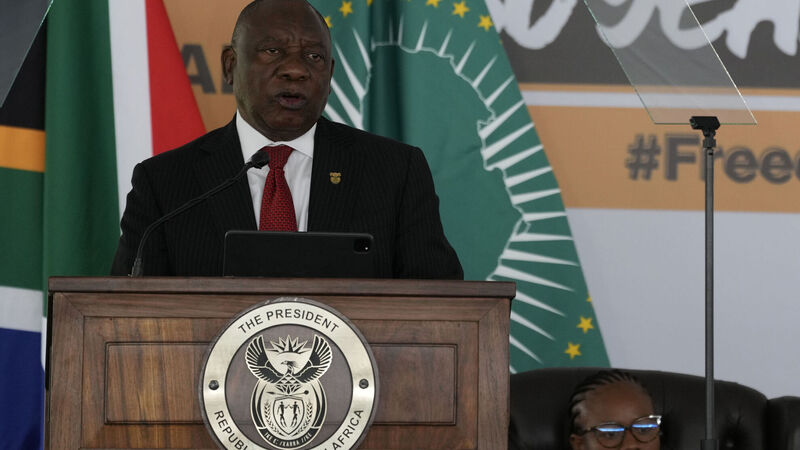Irish Examiner view: Democracy will be tested in South Africa

South African president Cyril Ramaphosa speaking at Freedom Day celebrations in Pretoria on April 27, marking the 30th anniversary of the country's first democratic election in 1994. Picture: Themba Hadebe/AP
During the Gaza crisis and, before it, the invasion of Ukraine, much publicity has been given to the views of the so-called Global South.
A prominent player has been South Africa, whose application before the International Court of Justice to have Israel’s actions classified as a “genocide”, has won our backing, and in particular the support of the Tánaiste Micheál Martin.
















